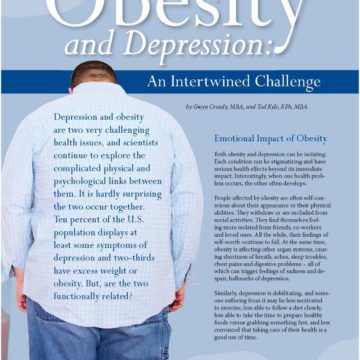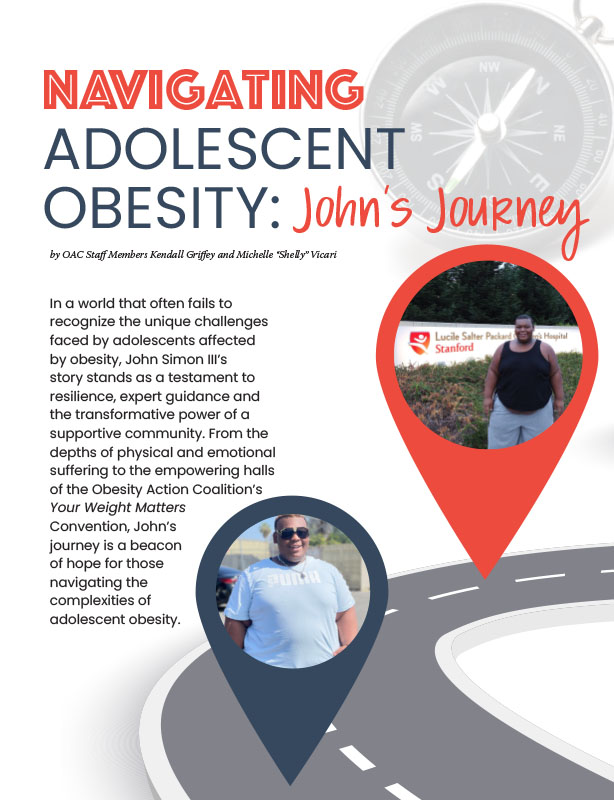Dear Doctor – Can Bariatric Surgery Treat Type 2 Diabetes?

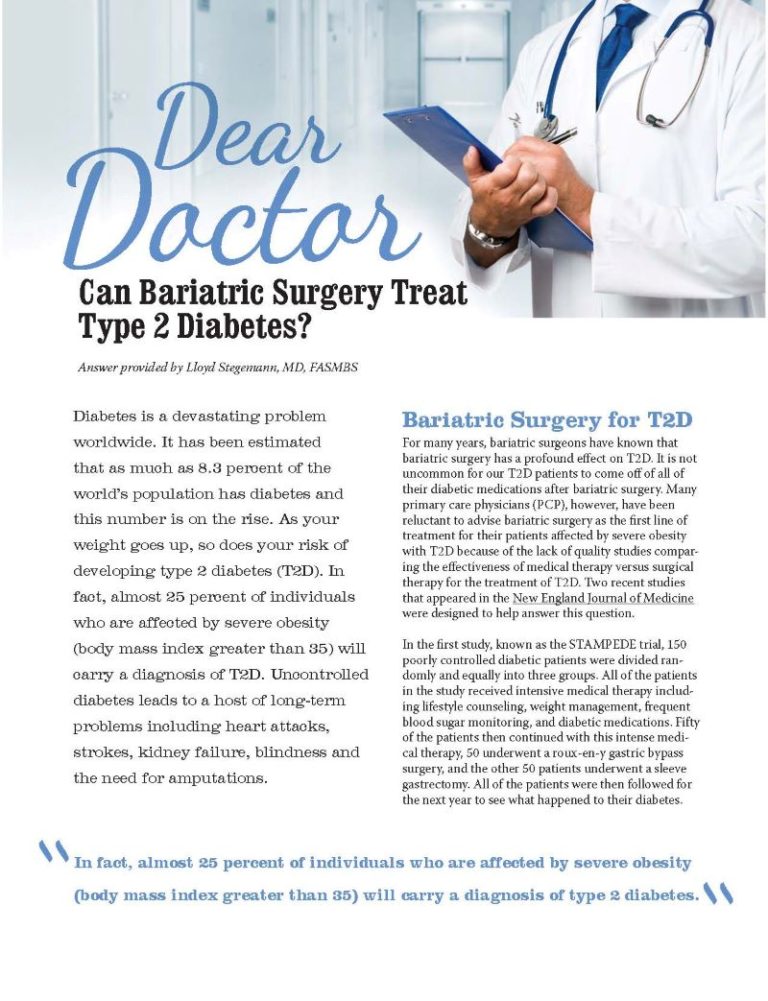
Answer provided by Lloyd Stegemann, MD, FASMBS
Summer 2012
Diabetes is a devastating problem worldwide. It has been estimated that as much as 8.3 percent of the world’s population has diabetes and this number is on the rise. As your weight goes up, so does your risk of developing type 2 diabetes (T2D). In fact, almost 25 percent of individuals who are affected by severe obesity (body mass index greater than 35) will carry a diagnosis of T2D. Uncontrolled diabetes leads to a host of long-term problems including heart attacks, strokes, kidney failure, blindness and the need for amputations.
Bariatric Surgery for T2D
For many years, bariatric surgeons have known that bariatric surgery has a profound effect on T2D. It is not uncommon for our T2D patients to come off of all of their diabetic medications after bariatric surgery. Many primary care physicians (PCP), however, have been reluctant to advise bariatric surgery as the first line of treatment for their patients affected by severe obesity with T2D because of the lack of quality studies comparing the effectiveness of medical therapy versus surgical therapy for the treatment of T2D. Two recent studies that appeared in the New England Journal of Medicine were designed to help answer this question.
In the first study, known as the STAMPEDE trial, 150 poorly controlled diabetic patients were divided randomly and equally into three groups. All of the patients in the study received intensive medical therapy including lifestyle counseling, weight management, frequent blood sugar monitoring, and diabetic medications. Fifty of the patients then continued with this intense medical therapy, 50 underwent a roux-en-y gastric bypass surgery, and the other 50 patients underwent a sleeve gastrectomy. All of the patients were then followed for the next year to see what happened to their diabetes.
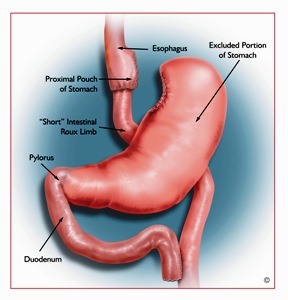
Roux-en-Y Gastric Bypass
The roux-en-y gastric bypass (right/image courtesy of Ethicon Endo-Surgery, Inc.) operation has been used since the late 1960’s to achieve significant weight-loss in people affected by severe obesity. A gastric bypass can be done through a series of small incisions (laparoscopic). The surgery involves three basic steps:
- Creation of a small pouch (Proximal Pouch of Stomach)
- Bypassing part of the small intestine (creating the “Short” Intestinal Roux Limb)
- Attaching the bypassed intestine (Roux Limb) to the pouch
Sleeve Gastrectomy
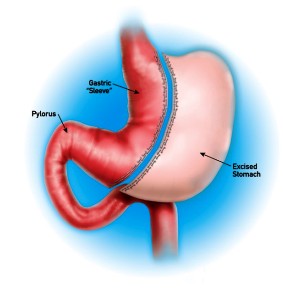
During the sleeve gastrectomy (right/image courtesy of Ethicon Endo-Surgery, Inc.), about 75 percent of the stomach is removed leaving a narrow gastric tube or “sleeve.” No intestines are removed or bypassed during the procedure. When compared to the gastric bypass, the sleeve can offer a shorter operative time that can be an advantage for patients with severe heart or lung disease.
In the group that underwent intensive medical therapy for an entire year, 12 percent of the patients were able to achieve excellent control of their T2D (HgbA1C less than 6.0). This was achieved, however, by increasing the number of medications they were taking to control their T2D.
In the bariatric surgery groups, 42 percent of gastric bypass patients and 37 percent of sleeve gastrectomy patients were able to obtain excellent control of their T2D. Importantly, in the bariatric surgery patients, this excellent control was obtained while decreasing the number of medications they were taking for T2D. In fact, in the gastric bypass group, 78 percent of the patients were able to come off ALL of their T2D medications!
In the second study, which came out of Italy, 60 patients who had T2D for at least five years and were poorly controlled were randomized into one of three groups. Twenty patients received intense medical therapy alone, 20 had intense medical therapy and a gastric bypass, and the last 20 had intense medical therapy and a biliopancreatic diversion (a less common bariatric surgery in the U.S.). The patients were then followed for the next two years to see what happed to their T2D.
In the medical therapy group 0.0 percent of patients achieved T2D remission after two years, while 78 percent of the gastric bypass patients and 98 percent of the biliopancreatic diversion patients achieved complete remission of their T2D!
Conclusion
These two well designed, well executed studies add to the mounting evidence showing bariatric surgery is effective in the treatment of T2D. While it is slowly gaining ground in the U.S., most PCPs do not recommend bariatric surgery for the treatment of T2D. If you or someone you know has T2D and is severely overweight, you owe it to yourself to look into bariatric surgery. At the end of the day, bariatric surgery is not right for everyone, but you won’t know until you learn more and become an informed patient. Remember, YOU are the leader of your healthcare team!
Answer provided by:
Lloyd Stegemann, MD, FASMBS, is a private practice bariatric surgeon in Corpus Christi, TX. He is the driving force behind the Texas Weight-loss Surgery Summit and the formation of the Texas Association of Bariatric Surgeons. Dr. Stegemann is a member of the American Society for Metabolic and Bariatric Surgery, OAC National Board of Directors and is Chair of the OAC Sponsored Membership Program.
by OAC Staff Members Kendall Griffey and Michelle “Shelly” Vicari Winter 2024 In a world that often…
Read Articleby Sarah Ro, MD; and Young Whang, MD, PhD Fall 2023 Mary, a postmenopausal woman with a…
Read Articleby Rachel Engelhart, RD; Kelly Donahue, PhD; and Renu Mansukhani, MD Summer 2023 Welcome to the first…
Read Article




